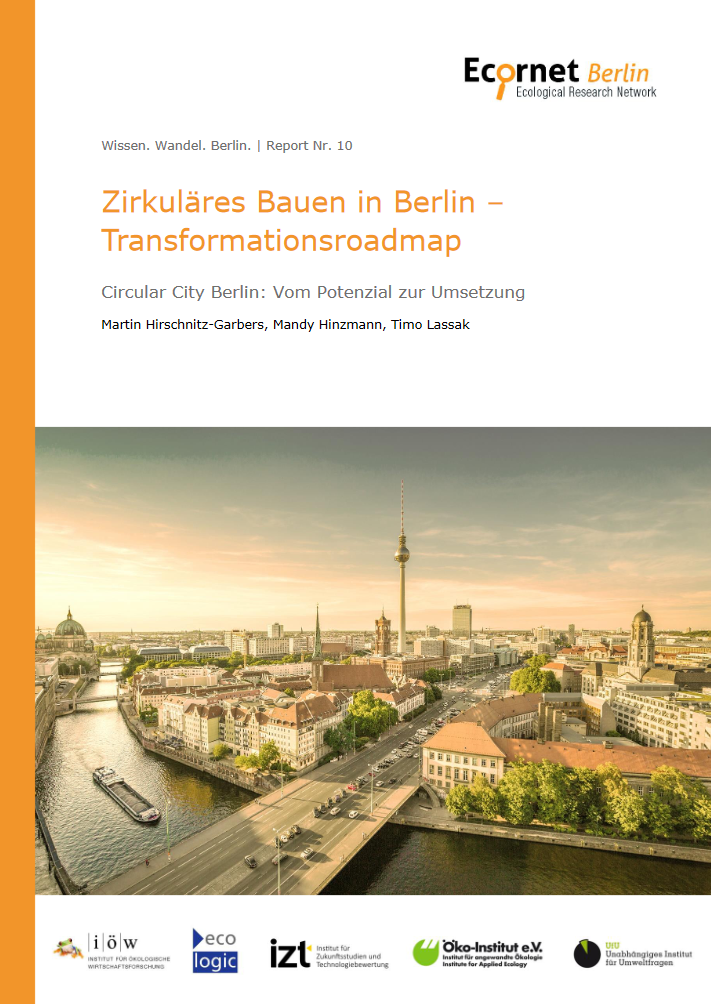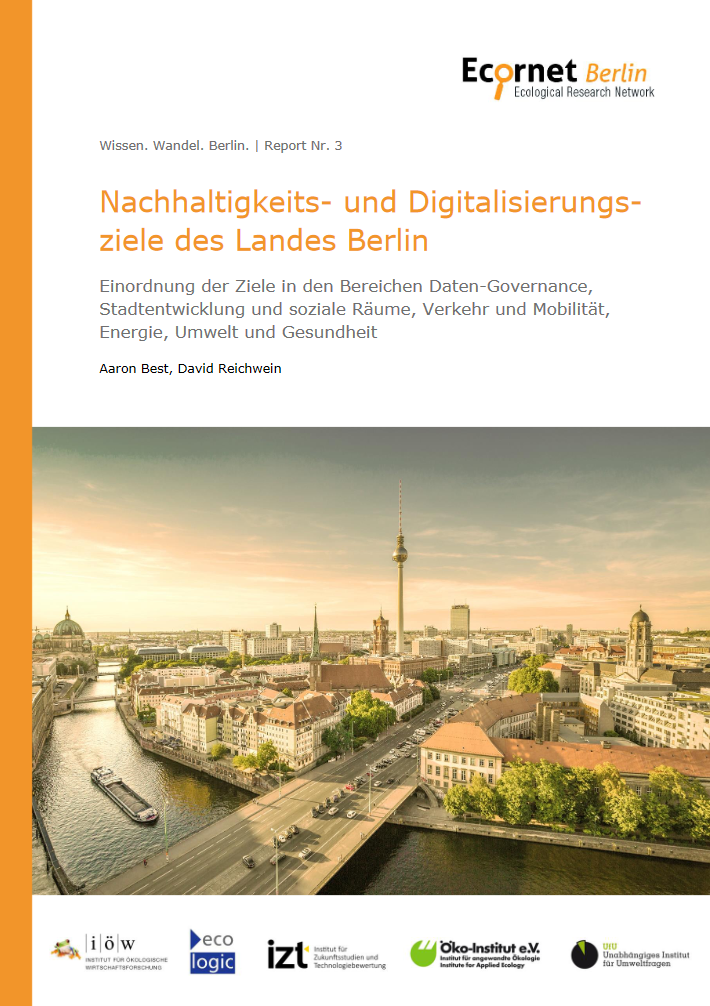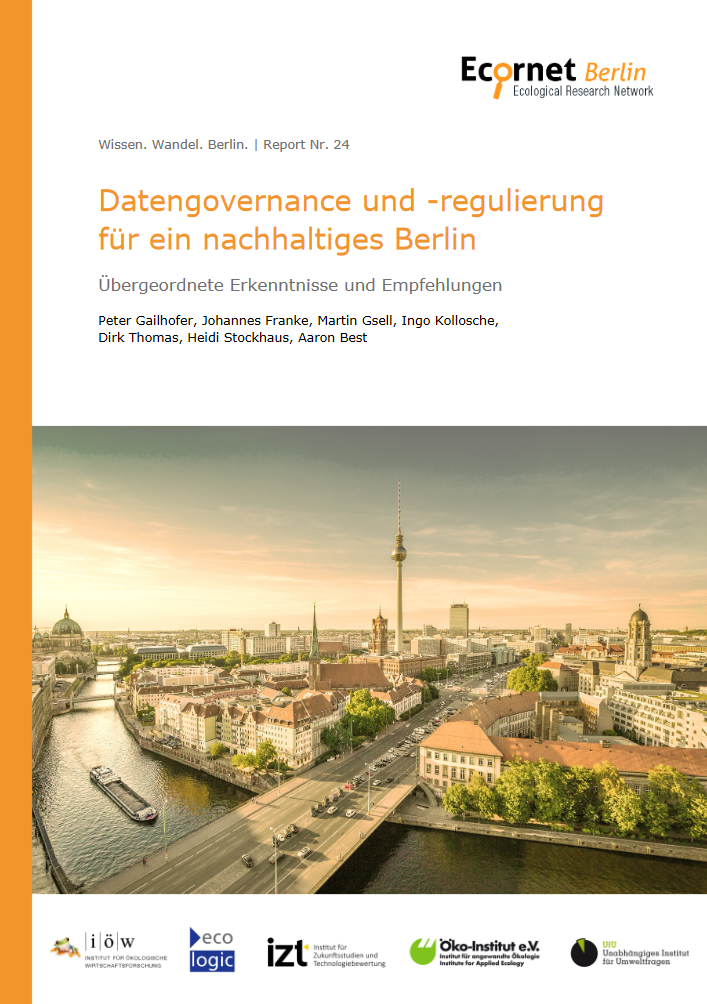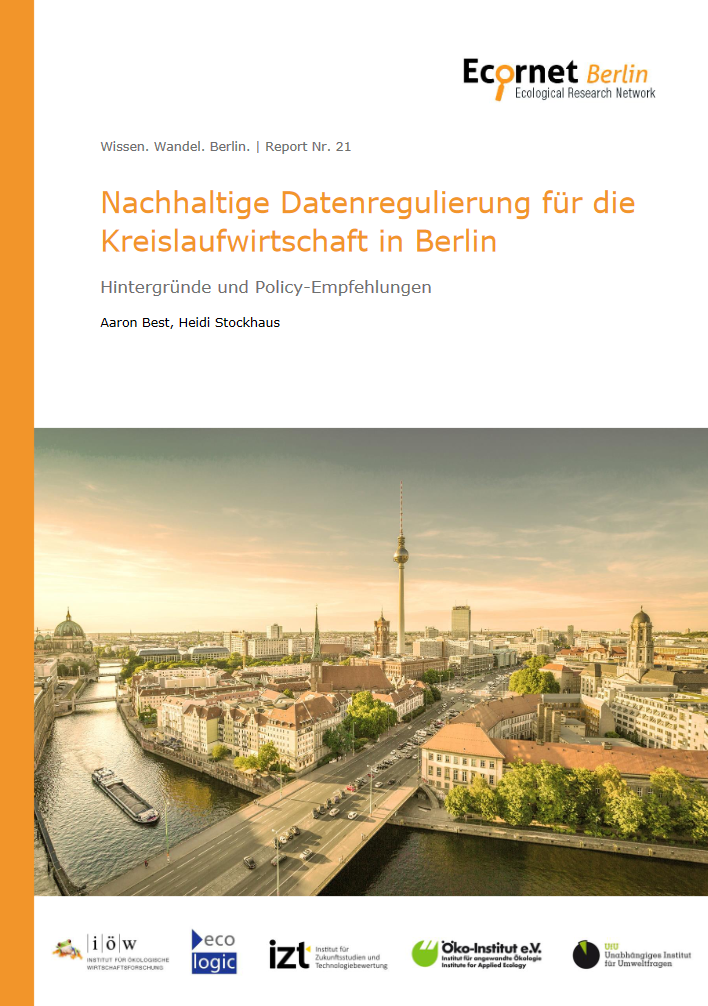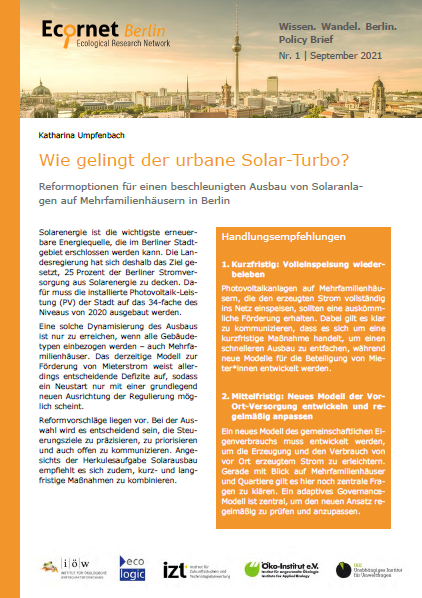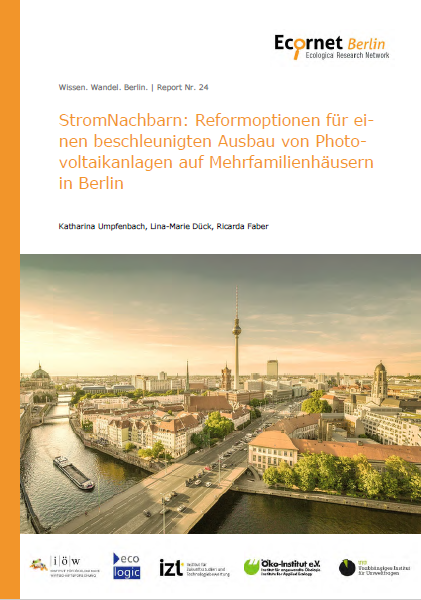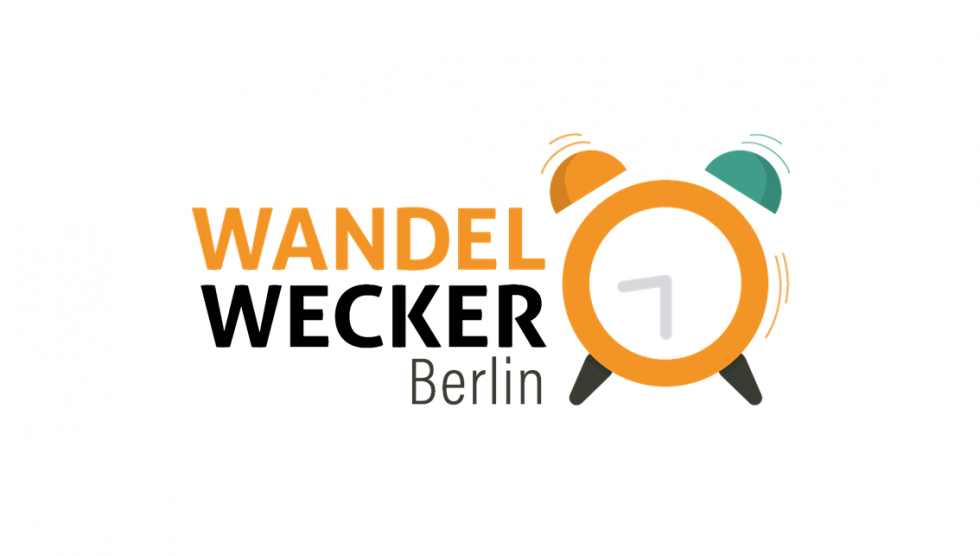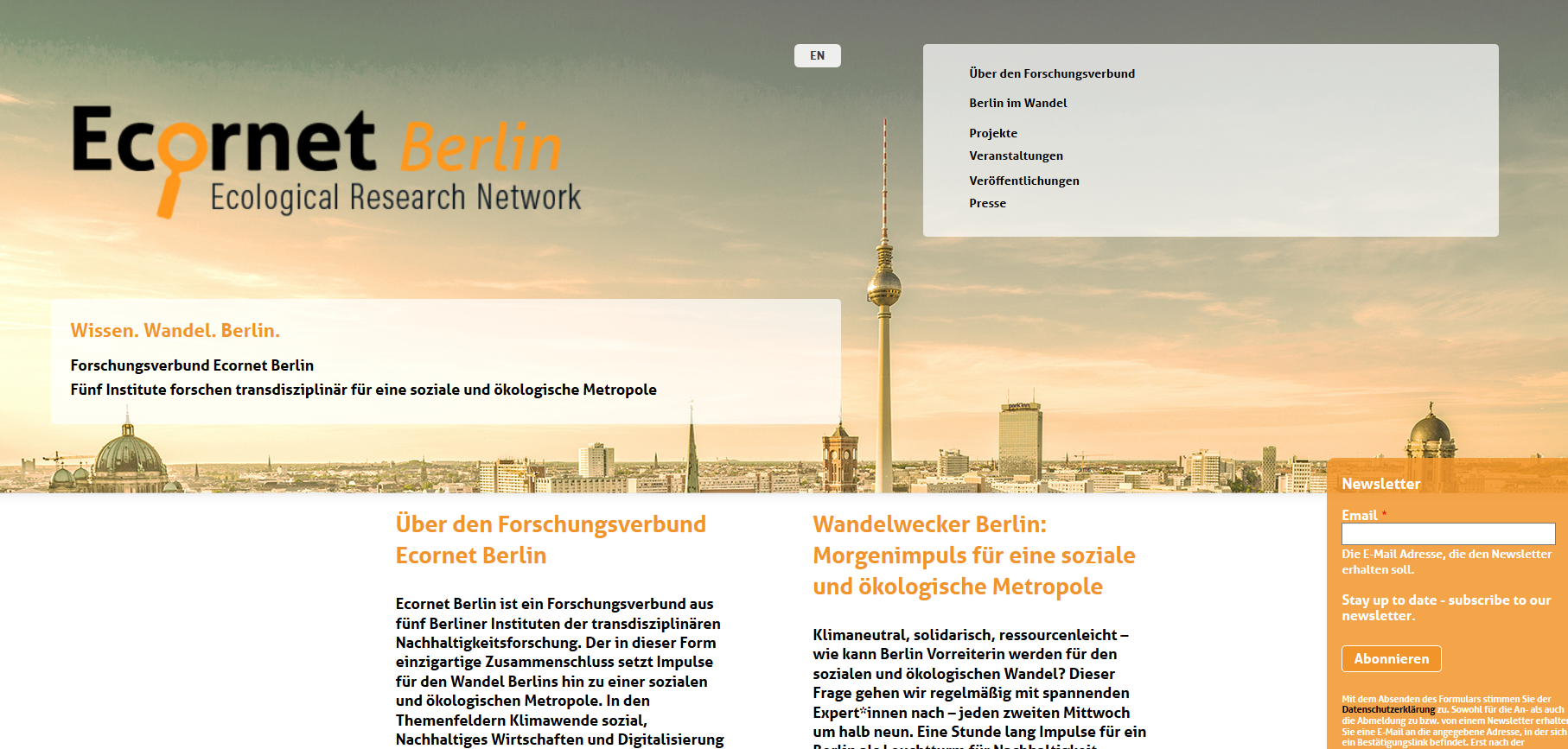Climate Neutrality: Berlin Discusses the Future of Housing and Construction
Conference: "Knowledge. Change. Berlin. 2021"
- News
- Date
-
- Location
- Berlin, Germany
- 2 November 2021: Conference "Knowledge. Change. Berlin. 2021" by the research network Ecornet Berlin at the Urania Berlin as part of the Berlin Science Week.
- Leading institutes in sustainability research join forces with urban society to discuss Berlin's climate-neutral future
- New impulses on how Berlin can shape the heat transition in a way that is both ecological and socially just
The city of Berlin has many plans when it comes to climate protection. One major roadblock is the heating transition: To become climate-neutral by 2045 at the latest, around 360,000 residential and non-residential buildings in the capital must be supplied with environmentally friendly space heating and hot water. Furthermore, all new buildings must be planned and constructed in a way that conserves resources. In addition to the organizational and technical challenges involved in achieving a climate-friendly heat supply, a key question is how this can be achieved in a socially just manner that ensures rental prices remain affordable for low-income groups as well. On 2 November 2021, five leading Berlin institutes in sustainability research contributed to the conference "Knowledge. Change. Berlin. 2021" Solution Approaches for Climate-Neutral Housing and Construction and invited stakeholders from the city to the discussion.
What tasks will the future Senate face in the heat transition and what scope for action do practical actors such as private homeowners, cooperatives, associations and trades have? For the past year and a half, the institutes in the Ecornet Berlin research network have been working with the financial support of the Governing Mayor, Senate Chancellery – Science and Research on how Berlin can address key issues facing the future, such as climate protection, digitization and sustainable business.
Climate-Neutral Housing and Construction Must Become the Standard
"If we want to prevent the collapse of the climate system and meet political targets, climate-neutral housing and construction must become the standard," explained Thomas Korbun, spokesman for the research network and scientific director of the Institute for Ecological Economy Research (IÖW). "No one should be left behind on this path. This fall and winter, we are feeling how rising prices for fossil energy are becoming a burden for many households. The message is clear: We must move consistently toward renewable energy while curbing our energy demand through heat-insulated and more efficient buildings."
Combining Climate Protection with Issues of Distribution and Justice
Social, ecological and technical challenges must be consistently considered together in order to enable climate-neutral housing and construction for all. What are the possible solutions and what role can the circular economy and digital technologies play? The conference brought together relevant practitioners — experts in architecture, the housing industry, the tenants' association, the senate administration and federal politics.
"It is important for us to look beyond Berlin and learn from the views of other cities in Europe. That is why we are putting our research results into dialogue with the experiences of other countries," explained Verbund spokesperson Anke Herold, Managing Director of the Oeko-Institut. The pioneering cities of Vienna and Zurich are providing impetus. There, energy-efficient refurbishment and consistent decarbonization of the heat supply to buildings are already being considered and promoted together in numerous measures and experiments. Vienna in particular also links these issues to social housing and affordable rental rates.
Workshops on Social Justice, Circular Construction and Data Governance.
More than 25 experts from the fields of science, politics, business and civil society participated in discussions with guests at the conference. Three of the workshops focused on concrete solutions: How can investments in energy-efficient renovation measures and new energy producers be refinanced without the conflict between climate protection and tenant protection becoming a stumbling block? How can Berlin lead the way with its public buildings and set new standards for recyclability, durability and renewable raw materials? And how can digital technologies that measure and optimize electricity and heat consumption in residential buildings create added social and ecological value?
The results of the conference were incorporated into the practice-oriented projects of the Ecornet Berlin research network, which aimed to provide specific knowledge to the city of Berlin as it moves towards becoming a social and ecological metropolis.
About the research network Ecornet Berlin:
The Ecornet Berlin research network consists of: Ecologic Institute, Institute for Ecological Economy Research (IÖW), IZT - Institute for Futures Studies and Technology Assessment, Öko-Institut and Independent Institute for Environmental Issues. The five research institutes with headquarters or offices in Berlin are part of the Ecological Research Network (Ecornet), a network of independent institutes of environmental and sustainability research in Germany with the common mission to scientifically substantiate societal change towards sustainability. The project is carried out with financial support from the Governing Mayor, Senate Chancellery – Science and Research Berlin.
www.ecornet.berlin
The annual conference "Knowledge. Change. Berlin. 2021" of the Ecornet Berlin research network was part of the Berlin Science Week.




